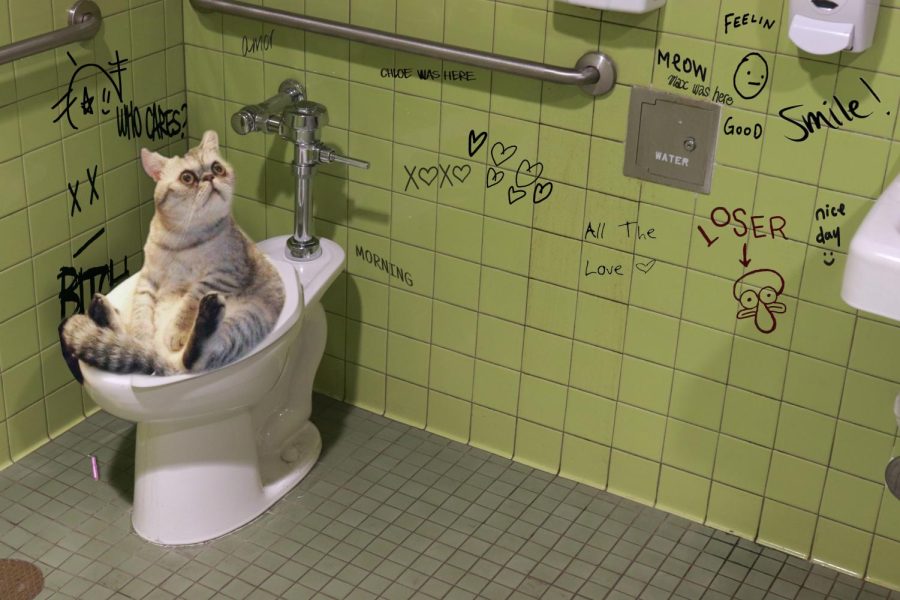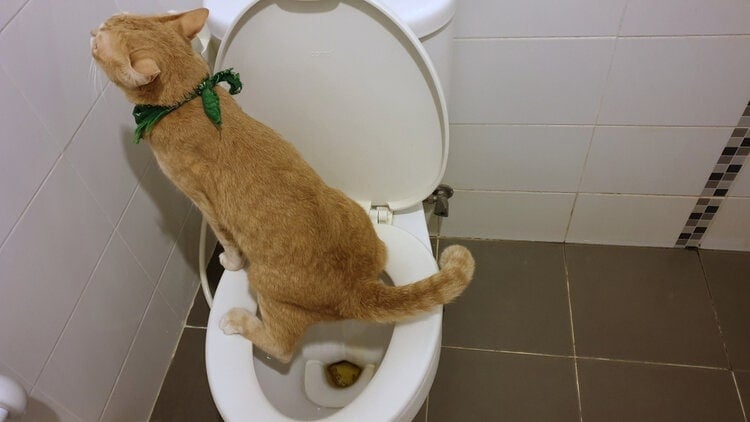Avoid Clogs and Damage: Never Flush Cat Poop Down Your Toilet - Expert Insights
Avoid Clogs and Damage: Never Flush Cat Poop Down Your Toilet - Expert Insights
Blog Article
We've found the article pertaining to How to Dispose of Cat Poop and Litter Without Plastic Bags listed below on the net and reckoned it made perfect sense to share it with you on my blog.

Introduction
As feline proprietors, it's essential to be mindful of exactly how we dispose of our feline good friends' waste. While it may appear convenient to purge feline poop down the bathroom, this method can have destructive consequences for both the atmosphere and human wellness.
Ecological Impact
Flushing feline poop presents dangerous virus and parasites into the water, positioning a significant risk to aquatic ecosystems. These impurities can negatively affect marine life and compromise water top quality.
Health and wellness Risks
In addition to ecological issues, flushing pet cat waste can likewise present wellness dangers to humans. Cat feces might include Toxoplasma gondii, a bloodsucker that can trigger toxoplasmosis-- a possibly severe illness, particularly for expecting women and individuals with weakened immune systems.
Alternatives to Flushing
The good news is, there are much safer and more responsible ways to take care of pet cat poop. Take into consideration the adhering to alternatives:
1. Scoop and Dispose in Trash
One of the most common technique of disposing of pet cat poop is to scoop it right into an eco-friendly bag and toss it in the trash. Be sure to use a committed clutter scoop and dispose of the waste immediately.
2. Use Biodegradable Litter
Opt for eco-friendly feline trash made from products such as corn or wheat. These clutters are environmentally friendly and can be safely disposed of in the garbage.
3. Hide in the Yard
If you have a yard, take into consideration hiding pet cat waste in a marked location away from vegetable yards and water sources. Be sure to dig deep adequate to stop contamination of groundwater.
4. Mount a Pet Waste Disposal System
Buy a pet dog waste disposal system particularly developed for pet cat waste. These systems use enzymes to break down the waste, reducing odor and environmental impact.
Conclusion
Liable animal possession expands past providing food and shelter-- it additionally includes proper waste management. By refraining from flushing cat poop down the toilet and selecting alternate disposal techniques, we can minimize our environmental impact and shield human wellness.
Why You Should Never Flush Cat Poop Down the Toilet
A rose by any other name might smell as sweet, but not all poop is created equal. Toilets, and our sewage systems, are designed for human excrement, not animal waste. It might seem like it couldn’t hurt to toss cat feces into the loo, but it’s not a good idea to flush cat poop in the toilet.
First and foremost, assuming your cat uses a litter box, any waste is going to have litter on it. And even the smallest amount of litter can wreak havoc on plumbing.
Over time, small amounts build up, filling up your septic system. Most litter sold today is clumping; it is made from a type of clay that hardens when it gets wet. Ever tried to scrape old clumps from the bottom of a litter box? You know just how cement-hard it can get!
Now imagine just a small clump of that stuck in your pipes. A simple de-clogger like Drano isn’t going to cut it. And that means it’s going to cost you big time to fix it.
Parasitic Contamination
Believe it or not, your healthy kitty may be harboring a nasty parasite. Only cats excrete Toxoplasma in their feces. Yet it rarely causes serious health issues in the cats that are infected. Most people will be fine too if infected. Only pregnant women and people with compromised immune systems are at risk. (If you’ve ever heard how women who are expecting are excused from litter cleaning duty, Toxoplasma is why.)
But other animals may have a problem if infected with the parasite. And human water treatment systems aren’t designed to handle it. As a result, the systems don’t remove the parasite before discharging wastewater into local waterways. Fish, shellfish, and other marine life — otters in particular — are susceptible to toxoplasma. If exposed, most will end up with brain damage and many will die.
Depending on the species of fish, they may end up on someone’s fish hook and, ultimately on someone’s dinner plate. If that someone has a chronic illness, they’re at risk.
Skip the Toilet Training
We know there are folks out there who like to toilet train their cats. And we give them props, it takes a lot of work. But thanks to the toxoplasma, it’s not a good idea.

As an enthusiastic reader about Don’t flush cat feces down the toilet, I assumed sharing that editorial was a good idea. Enjoyed our piece of writing? Please share it. Let other people locate it. Thanks so much for going through it.
Request An Estimate Report this page